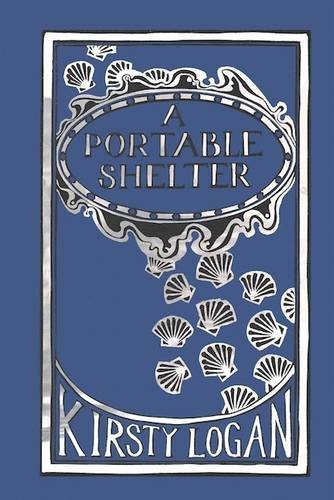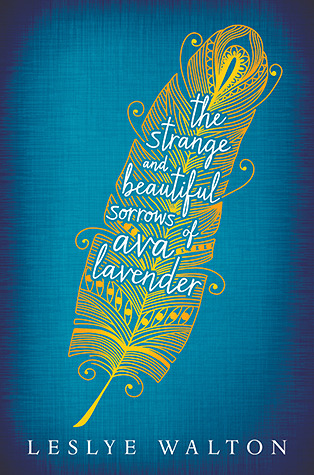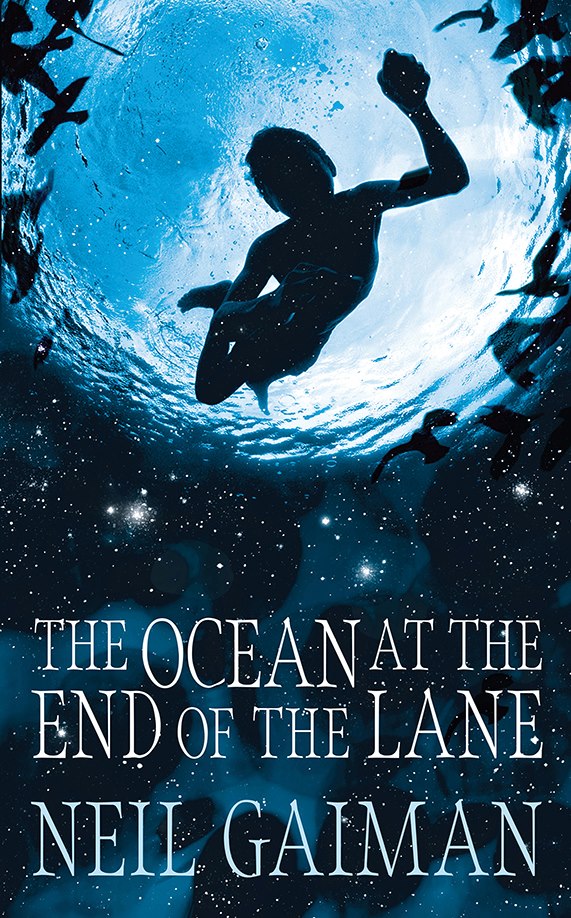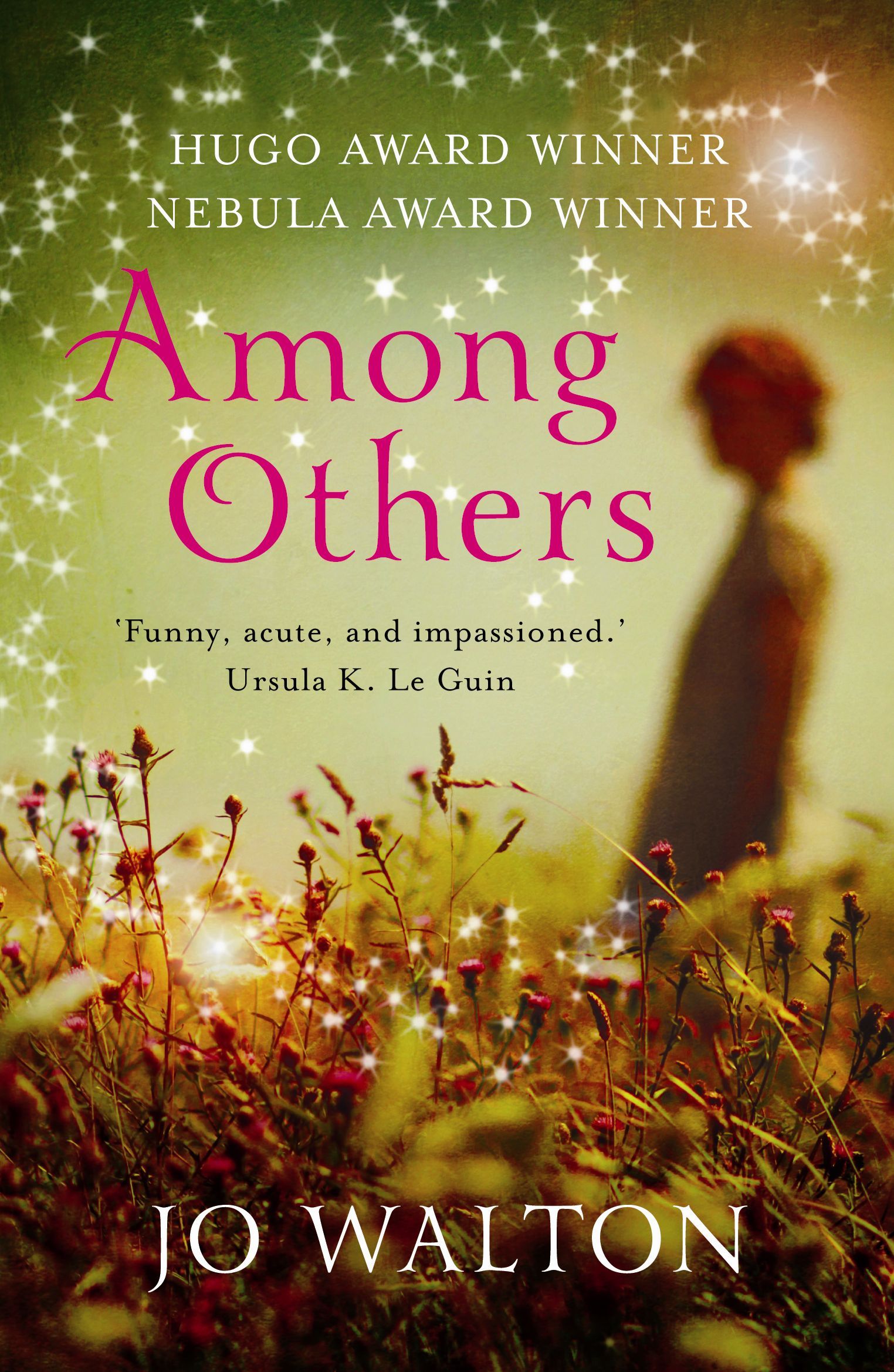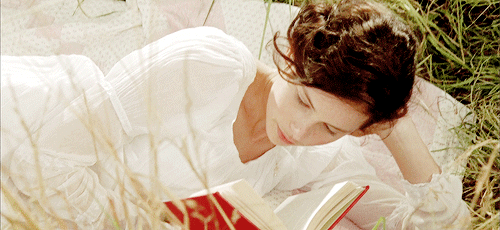I've read 28 books so far this year, and only 4 of those 28 were written by non-white authors. Last year I read 97 books, and only 6 of them were written by non-white authors. Judging by my reading this year I'd exceed 6 non-white authors if I read 97 books, but one thing is certain: I need to improve my BAME game.
Why? Some might ask. Why make a conscious effort to read more BAME authors if you're naturally drawn to white authors? Are the authors really that good if you have to remind yourself to read them?
I don't like that train of thought. Isn't it awfully sad that so many white readers have to make an effort to read more BAME authors because they can't remember the last time they did? Isn't it awfully sad to have to make an effort to read them at all? Why aren't they as well known to us as our white authors? Is it because we're all racist?
Well, no. That's also unfair, and a ridiculous self-defense that many jump to when they feel like one person calling out the odd prejudice is akin to being labelled bigots. But we can be ignorant without being racist, and we can be ignorant while also being nice people. You might never consciously be racist, but you can still contribute to the issue without realising simply by not acknowledging that the reason you're only reading white authors isn't because 'only white authors can write'. (That is racist).
Anyhoo, below are a list of books by BAME authors I'd really like to try and read this year. Are any of them on your TBR?
I have read and loved the late, great Maya Angelou's 'Phenomenal Woman', which is probably one of my favourite poems, but I've never actually read a whole collection of hers. I picked up a copy of And Still I Rise on a whim last year, as I've been trying to read more poetry, and I'm really looking forward to reading it some time this year. I should have read it last year, it doesn't take me long to devour a poetry collection, so I'm determined to read it very soon.
Unlike the majority of the authors on this list, Salman Rushdie is an author I'm familiar with. In my first year of university I had to read Haroun and the Sea of Stories, and I loved it - if you're a fan of retellings you need to pick it up. Earlier this year I went to Florence, and ended up picking up The Enchantress of Florence in the Uffizi Gallery's gift shop because I couldn't not. I'm really looking forward to reading more of Rushdie's work, and I think reading a book set in Florence having been there will be wonderful.
I hadn't heard of Tan Twan Eng until last October when I came across The Gift of Rain in the Waterstones in Trafalgar Square. I didn't buy the book then, though I certainly considered it, and I kept thinking about it afterwards. Recently I finally picked up a copy and I'm looking forward to reading it; I've read so few books set in Asia, and I'm always interested in books that have mixed race protagonists.
I'm not totally unfamiliar with Octavia Butler. I actually started reading Kindred around this time last year, and I enjoyed it, but for some reason one day I put it down and didn't pick it back up. I want to read it properly this year because I've heard nothing but praise for Butler, and I'd like to read more science fiction and more historical fiction with poc protagonists.
Another author who's not a complete stranger to me, because last year I read Chimamanda Ngozi Adichie's We Should All Be Feminists which I really enjoyed. Now, though, I'd like to read some of her fiction and I've yet to hear a bad word about Americanah; I know very little about Nigeria, so I'd like to explore it through the work of someone who is Nigerian.
Somehow Stacey Lee's Under a Painted Sky managed to completely pass me by last year, and as someone who loves historical fiction, and especially loves historical fiction when it's told from the point of view of people history has forgotten, I had to rectify that immediately. I still have yet to read it (story of my life) but I'm looking forward to a historical road trip following two girls of colour posing as boys along the Oregon Trail.
I'd heard of Helen Oyeyemi, but I wasn't properly introduced to her until about a month ago when she appeared in a documentary about the Brontë sisters on the BBC. Lately her latest short story collection, What is Not Yours is Not Yours, has been everywhere, and when I saw how beautifully it had been published I couldn't resist picking up my own copy. I'm really looking forward to trying out Oyeyemi's work, and if I enjoy her short fiction I may try one of her novels.
I should have read Zen Cho by now. The lovely Mikayla @ Mikayla's Bookshelf and I decided to buddy read her debut, Sorcerer to the Crown, back in February and I completely failed at it because I suck at buddy reads. It's like as soon as I 'have to' read a book it's the last thing I want to read, and I wish I wasn't so stubborn. I will be reading it soon, though, because it's more historical fiction and a little bit of magic, too.
I've owned my copy of Battle Royale for years, so it's pretty appalling I still haven't read any of Koushun Takami's work. After dystopian fiction started appearing everywhere, and I wrote about the genre for my dissertation, I went off it, and I haven't really read any dystopia since. I think I'll need to be in the right mood for Battle Royale, but I'm determined to cross it off my TBR eventually.
My relationship with Chigozie Obioma is similar to my relationship with Octavia Butler and Chimamanda Ngozi Adichie; I started reading his debut, The Fishermen, last year, and then for whatever reason put it down and didn't pick it back up, but I'd like to finish it and read more fiction set in Nigeria from a Nigerian author. Plus if Obioma's debut can make the Man Booker shortlist, I look forward to seeing what his future career will bring.
Who are some of your favourite BAME authors?
Friday, 13 May 2016
Improving my #BAME Game
Labels:
chigozie obioma,
chimamanda ngozi adichie,
helen oyeyemi,
koushun takami,
maya angelou,
octavia butler,
salman rushdie,
stacey lee,
tan twan eng,
zen cho
Wednesday, 11 May 2016
This Week in Books | 11/05/16
This week I'm joining in with Lipsy @ Lipsyy Lost & Found to talk about the books I've been reading recently!
NOW: Right now I'm in the middle of Jo Walton's Among Others, which I've heard nothing but good things about and have been meaning to read for years. I'm enjoying it, but it's not quite what I expected - the main character was revealed to be older than I'd been reading her when I was already about a quarter of the way through the book so that was a bit jarring. I'm looking forward to seeing how the story progresses, though!
THEN: I decided to re-read The Goblin Emperor, which might very well be my favourite book. Period. I read it for the first time last year and adored it, and re-reading it reminded me how much I love it. If you haven't read this book yet I can't recommend it enough.
NEXT: The Ocean at the End of the Lane, like Among Others, is one of the books on my #BookBuddyAthon TBR. Neil Gaiman's one of my favourite authors but I still haven't read this, so I'm looking forward to finally sinking my teeth into it.
What are you reading?
Labels:
among others,
books,
fantasy,
jo walton,
katherine addison,
magical realism,
neil gaiman,
the goblin emperor,
the ocean at the end of the lane,
this week in books
Sunday, 8 May 2016
#BookBuddyAthon TBR
The #BookBuddyAthon is a read-a-thon created on YouTube by Samantha @ Cold Tea and Crumbs and Elena @ Elena Reads Books. The official read-a-thon is running all this week, from the 7th-13th May. My lovely friend Natalie @ A Sea Change agreed to be my buddy - go and check out her blog if you haven't already, because it's wonderful - and we've decided to extend our read-a-thon to last throughout the month, purely because we'd like to read all of the books we'll be reading and there's no way we can do it all in 5 days; I work full time and Natalie's in the midst of a full time PhD, so we're both busy bees!
The #BookBuddyAthon challenges are:
The #BookBuddyAthon challenges are:
- Read a book with your buddy.
- Read a book with your buddy's favourite colour on the cover.
- Read a book that begins with your buddy's first initial.
- Pick three books you want to read, and read the one your buddy picks for you.
- Read a book you want to read.
Read a book with your buddy:
Natalie suggested we read Kirsty Logan's A Portable Shelter as we both own it and both have yet to read it, and I whole-heartedly agreed! It sounds like a lovely collection of stories, and because it's a collection I can dip in and out of it throughout the month which is ideal.
Read a book with your buddy's favourite colour on the cover:
Like me, Natalie's favourite colour has a tendency to waver, but for this challenge she chose the colour blue so I decided to go with The Strange & Beautiful Sorrows of Ava Lavender, which I've been meaning to get to for a while now. It's a beautiful book, so I hope I enjoy the inside as much as the outside!
Read a book that begins with your buddy's first initial:
For an 'N' book I decided to go with The Night Watch, which is the last of Sarah Waters' published novels I have yet to read. It's the one book I hear the most mixed reviews from, which is why I haven't gotten to it yet, but Waters is one of my favourite authors and I'd really like to get to it soon.
Pick three books you want to read, and read the one your buddy picks for you:
I picked The Shadow of the Wind by Carlos Ruiz Zafón, The Book of Lost Things by John Connolly, and The Ocean at the End of the Lane by Neil Gaiman. As Natalie is also a big Gaiman fan, like myself, she picked The Ocean at the End of the Lane which I'm very excited to read; Gaiman is another favourite author of mine.
Read a book you want to read:
I've been meaning to read Jo Walton's Among Others for years. I've yet to hear a bad thing about it, and considering it won the Hugo and Nebula Awards when it was published it must be pretty darn special. I think that's why I haven't got to it yet, because I've been worried I won't like it as much as I'm hoping I will - there's only one way to find out, though!
Are you taking part in the #BookBuddyAthon? What are you hoping to read this month?
Labels:
#bookbuddyathon,
jo walton,
kirsty logan,
leslye walton,
neil gaiman,
sarah waters
Saturday, 7 May 2016
Is Northanger Abbey really a parody?
When it comes to horror, writers like Stephen King, James Herbert and H.P. Lovecraft are probably some of the first to spring to mind, but women have been at the centre of horror since horror began.
It was eighteen year old Mary Shelley who penned Frankenstein, and Carmilla was terrorizing young maidens in their beds a quarter of a century before Dracula washed up on the Whitby shore. The protagonists of Gothic novels are primarily young women trapped in eerie houses with limited and frightening prospects, and it’s a trope that continues to influence us, from the Alien franchise’s Ellen Ripley to Edith Cushing, the heroine of Guillermo del Toro’s latest film, Crimson Peak.
Needless to say, there’s no shortage of women in horror, whether they be in the starring roles or the orchestrator of all that chaos.
Though most famous for her comedy of manners stories, Austen’s first completed novel, Northanger Abbey, was a parody of the Gothic novels she was most likely reading at the time. Pride and Prejudice is widely considered to be Austen’s masterpiece, but personally I’ve always preferred the story of the young, obsessive reader who lets her imagination get the better of her.
‘Silly’ is a word I often see thrown about when describing Catherine, and to be honest I think it's unfair. Catherine is naïve, gullible and imaginative, but never silly. You see, I’m not sure that Northanger Abbey really is a parody.
Catherine’s no saint; she makes (some rather hurtful) assumptions that lead to embarrassing consequences, making her, like all of Austen’s heroines, an ancestor of today’s Bridget Joneses and Carrie Bradshaws. Upon first meeting General Tilney, Catherine casts him as the villain in her own personal story. He’s the cold, calculating man who so values wealth that poor, dowerless Catherine is certain she’ll never be able to marry his son, Henry, unless the two of them romantically run off into the sunset.
Naturally she’s surprised when the General invites her to his home, Northanger Abbey, and the Gothic fangirl in Catherine simply can’t resist the opportunity to stay in a place that sounds as though it belongs in one of her favourite novels. Unfortunately, the Gothic fangirl in Catherine also comes to the conclusion that the General murdered his wife. Oh dear.
Ultimately Catherine learns her lesson and resolves not to let herself get carried away by the novels she loves. She and Henry marry and have a baby, leaving Catherine in a state of domestic bliss as the novel comes to a close.
That’s all well and good, but there’s more to this novel than a young girl learning from her mistakes. It’s true that Catherine is wrong about the General murdering his wife, but she isn’t wrong about him. The General proves to be a villain not only in the way he treats Catherine, but in the way he treats his own family; Henry himself admits that while his father is no murderer, his mother was so unloved that the General’s treatment of her certainly hastened her arrival at the pearly gates.
Northanger Abbey is haunted in much the same way that Thornfield Hall and Manderley are; Rebecca de Winter might not be visible, but she is very present throughout Rebecca, and Bertha Mason quite literally haunts the attic of Thornfield, so much so that the servants mistake her for a ghost. Mrs Tilney’s rooms are closed up and disused, as though the very memory of her has been banished to a solitary part of the house. Northanger Abbey is a living museum of domestic unhappiness.
There may not be murder, scandal or supernatural creatures in Northanger Abbey, unlike many of the other pre-Victorian examples of Gothic literature, such as Mary Shelley’s Frankenstein and Matthew Lewis’s The Monk, but there is a quieter horror at work here that would have seemed much more real to Austen and the other women of her day.
Mrs Tilney’s fate was one which befell many women whose husbands married them for their wealth alone, and then treated them like breeding mares. Just like today, many marriages during the Regency period would have been happy ones, but the unhappy ones were very unhappy. Back then women had even less rights than today; they couldn’t vote, often weren’t granted a divorce when they were brave enough to seek one, and signed over everything they owned to their husbands when they were married.
Catherine may read the situations around her through a Gothic lens, but the conclusion she comes to - that General Tilney is a villain (of sorts) - is ultimately correct. She recognises that Mrs Tilney was the victim of a miserable marriage, and in doing so Austen rewards her with a happy one of her own.
Labels:
catherine morland,
gothic,
gothic literature,
henry tilney,
jane austen,
literature,
northanger abbey,
parody,
romantic literature
Tuesday, 3 May 2016
Top Ten Tuesday | When I Grow Up
Top Ten Tuesday is a weekly feature created at The Broke and the Bookish. Each week you compile a list of ten books which coincide with that week's theme. You can find everything you need to know about joining in here!
This week's theme is '' - I'm so excited to share my list with you and to see other people's lists, because I think this is such a fun topic and one that's going to give a lot of insight into the kind of books other book bloggers were reading during their childhood.
Just as a side note, I haven't included any characters from Harry Potter in this list because they'd probably take up my entire list. Also, with the main trio at least, we do get a glimpse of them as adults in the epilogue, and I'm off to see them as adults in the new play in October!
Matilda Wormwood from Matilda by Roald Dahl: As much as I tend to think of Matilda as forever a child, forever living comfortably with Miss Honey in their lovely house, I'd love to see the kind of woman Matilda would grow into. Very intelligent, of course - I get the feeling that Matilda would be the kind of girl who goes to university and never leaves, and once she has her English Literature PhD under her belt I'm sure she'd take the academic world by storm.
Adèle Varens from Jane Eyre by Charlotte Brontë: Considering there's a possibility that Adèle is Rochester's daughter, and that she and Jane get along so well, I feel like she gets forgotten too often by Jane Eyre fans - I'm guilty of forgetting her myself! Before she passed away Angela Carter had plans to write a novel about Adèle in which she slept with Rochester, who did indeed turn out to be her father, and then ran away to France to find her mother and become a dancer. Or something like that. That would have been interesting, but the amount of daughters who sleep with their fathers in Angela Carter's stories kind of freaks me out...
Mary Lennox from The Secret Garden by Frances Hodgson Burnett: The Secret Garden is one of my favourite classics, and Mary's one of my favourite heroines. I've always had a soft spot for her. I like to think she and Colin had a very happy childhood with Colin's father, and when she grew up I hope Mary became a botanist or something of that ilk. She has to do something with gardens, and Mary enjoys getting her hands dirty far too much to do nothing but arrange bouquets.
Alice from Alice's Adventures in Wonderland and Through the Looking-Glass by Lewis Carroll: I find it very hard to imagine Alice as anything but a perpetual child, but I imagine adult Alice would be a fascinating Victorian lady. I would hope she'd use her dreams - if they were dreams - to write bizarrely fun and fantastical stories for children, and indulge in a little nonsense.
Susan Pevensie from The Chronicles of Narnia by C.S. Lewis: I hate the way C.S. Lewis treats Susan, so I'd love to see her as a fully grown adult just to make sure she's doing okay. She's 21 years old by the time of The Last Battle, which means the majority of her 20s would take place in the '50s and her 30s in the '60s. I'd love to see her at political rallies fighting for birth control and racial equality. At least that's what she's doing in my head.
Sophie from the Sophie series by Dick King-Smith: Dick King-Smith is one of my favourite childhood authors. I was obsessed with animals when I was little - I wanted to be a vet for the longest time - so I devoured animal books of every kind, including Dick King-Smith's Sophie series. Sophie is a little girl who wants to be a farmer when she grows up, and I'd love to see if she achieved that dream.
Ellie Allard from the Girls series by Jacqueline Wilson: Jacqueline Wilson is another childhood favourite. In fact as a child she was my favourite author for a very long time; I read and loved everything she wrote. Her Girls series in particular has always been very special to me, because these were the first books I read during my pre-teens where I really understood the main character, Ellie. Ellie struggles a lot with self-esteem, especially with her appearance and her weight, and those were issues I struggled with (and still do) a lot during my teens. I'd love to see where Ellie ended up. Hopefully she's a world famous artist by now.
Sophie from The BFG by Roald Dahl: I'd love to know what Sophie grows up to be when she has The BFG for a guardian. Does she give children pleasant dreams with him, or does she set up her own giant-hunting agency for all those other horrible giants out there? Perhaps she even sets up a (very big) safe house for other giants like The BFG, and becomes the ambassador for human and giant relations. Whatever adulthood has in store for her, I'm sure it's not dull.
Nobody Owens from The Graveyard Book by Neil Gaiman: The Graveyard Book is probably my favourite of Neil Gaiman's novels, with American Gods coming in at a very close second, and I'd love to know what adulthood brings Bod. If you haven't read The Graveyard Book yet then I highly recommend you do - it's so good!
Neil and Emily Parker from the Puppy Patrol series by Jenny Dale: The Puppy Patrol series was another series I was obsessed with as a little girl; I used to own so many of these books, which centred around the adventures of the Parker family, particularly brother and sister Neil and Emily, who owned a kennels. Each book introduced a new dog and a new adventure, and I'd love to know if Neil and Emily stayed in the family business or did something entirely different.
Who made your list this week?
Labels:
c.s. lewis,
charlotte bronte,
dick king-smith,
frances hodgson burnett,
jacqueline wilson,
jenny dale,
lewis carroll,
neil gaiman,
roald dahl,
top ten tuesday
Subscribe to:
Posts (Atom)













